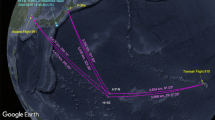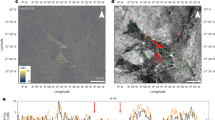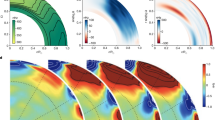Abstract
IN NATURE of March 7 there are two letters dealing with the subject of the transmission of electric waves over the earth's surface. Prof. Appleton has given some results which indicate that very marked interference effects occur at night. So far as I understand, he has suggested an interpretation of the experimental results in terms of the simple theory in which the maxima and minima of received intensity are supposed due to the interference of a direct ray over the surface of the earth, and a single reflected ray, passing from the earth to the Heaviside layer and back to the receiver. But the problem is scarcely so simple as this, for the multiple reflection may occur, the ray passing many times between the earth and upper layer before reaching the receiver. Such an effect would obscure the main results if the intensity of these rays were of the same order as those of the direct ray.
This is a preview of subscription content, access via your institution
Access options
Subscribe to this journal
Receive 51 print issues and online access
$199.00 per year
only $3.90 per issue
Buy this article
- Purchase on Springer Link
- Instant access to full article PDF
Prices may be subject to local taxes which are calculated during checkout
Similar content being viewed by others
Author information
Authors and Affiliations
Rights and permissions
About this article
Cite this article
ECKERSLEY, T. The Propagation of Radio Waves over the Earth. Nature 115, 496–497 (1925). https://doi.org/10.1038/115496a0
Issue Date:
DOI: https://doi.org/10.1038/115496a0
Comments
By submitting a comment you agree to abide by our Terms and Community Guidelines. If you find something abusive or that does not comply with our terms or guidelines please flag it as inappropriate.



